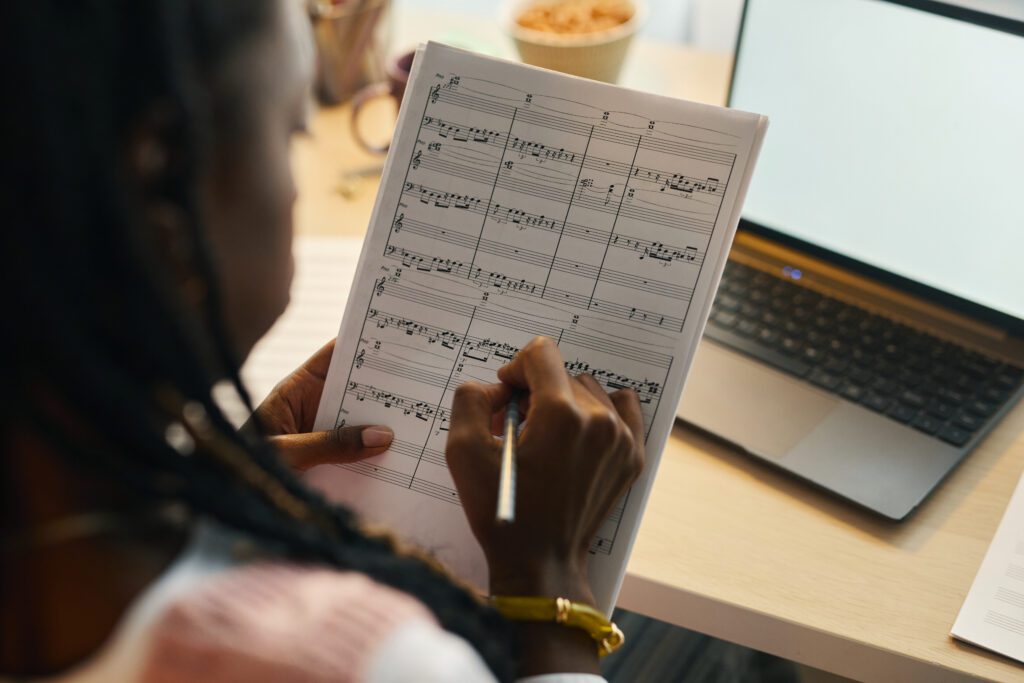Start Learning Music from Scratch
Have you always wanted to learn music but didn’t know where to start? Maybe you’ve thought, “I’m too old,” “I can’t sing,” or “I don’t have any musical background.” The truth is, anyone can Start Learning Music from Scratch—from any age and stage—if they have the right guidance.
Music is not just a talent; it’s a skill you can develop with practice, structure, and passion. In this guide, we’ll walk you through exactly how to begin learning music from scratch—whether you want to sing, play an instrument, or simply understand how music works.
1. Decide Why You Want to Learn Music from scratch
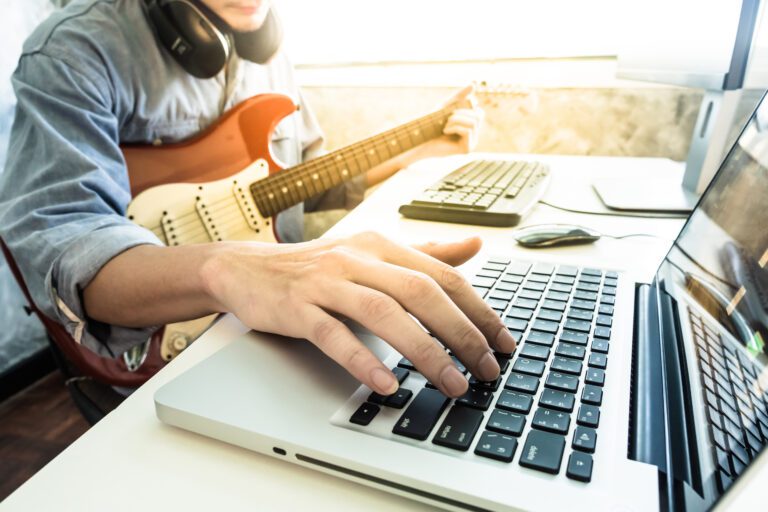
Before diving in, ask yourself: What’s your goal?
🎯 Common motivations include:
- Learning to sing confidently
- Playing an instrument (piano, guitar, etc.)
- Performing or recording music
- Writing songs or composing
- Clearing exams like Trinity or ABRSM
- Simply enjoying music as a hobby
Knowing your goal will help you choose the right path, instruments, and learning methods.
2. Choose Your Instrument or Voice
Start by picking an instrument—or your own voice if you want to sing.
🎹 Popular Beginner Choices:
- Piano / Keyboard – Great for learning music theory, melody & harmony
- Guitar – Easy for chord-based songs and singing along
- Voice – No equipment needed; focus on pitch, tone, breathing
- Drums – Perfect for rhythm and coordination
- Vocals + Instrument – Common for performers and worship leaders
Explore what inspires you most. You don’t need to pick perfectly—you can always switch or add later.
3. Understand the Basics of Music Theory
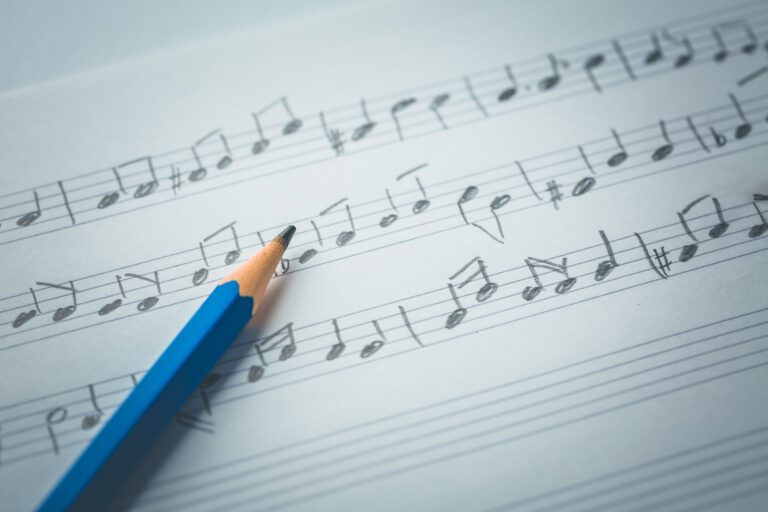
You don’t need to become a music scholar, but learning some fundamentals will go a long way.
📘 Music Theory Basics for Beginners:
- What are notes and scales?
- What is rhythm, tempo, and time signature?
- How do chords and harmony work?
- How to read sheet music or tabs
- How to keep time and stay on beat
Tip: Start slow, and connect theory with practical exercises.
4. Build a Practice Routine
Consistency beats talent. Set a simple daily or weekly routine.
🕒 Sample Beginner Practice Plan:
- 10 min warm-up (scales or breathing)
- 20 min practice (songs, technique)
- 10 min review (correct mistakes, record yourself)
Start with 30–40 minutes, 4–5 times a week. Progress will be slow at first, but it builds up fast!
5. Use Beginner-Friendly Learning Tools
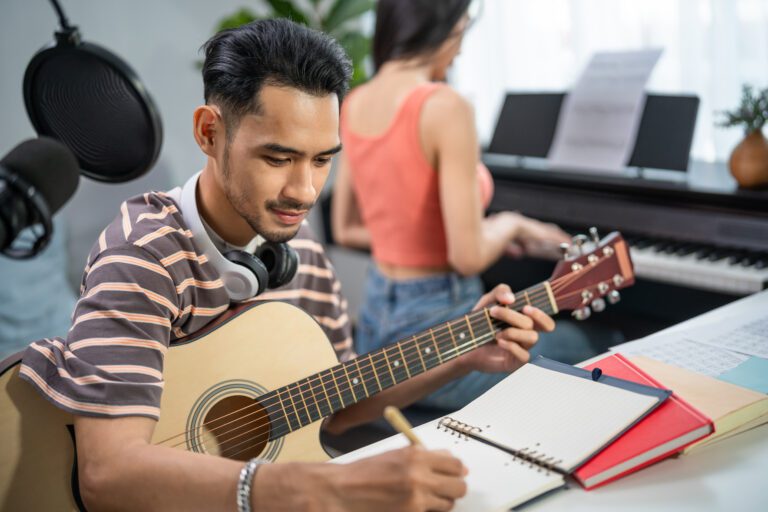
You don’t need expensive software or books right away. These tools make learning easier:
📲 Recommended Tools:
- Metronome (for rhythm)
- Tuner app (if playing an instrument)
- Backing tracks (for practice)
- YouTube or Spotify playlists for ear training
- Music learning apps like Simply Piano, Yousician, or Tenuto
- Combine tools with structured lessons for best results.
6. Learn to Listen Actively
Train your ears by listening not just for enjoyment, but to learn.
- Try to identify instruments in a song
- Clap along with the beat
- Hum back melodies
- Listen to different genres: classical, jazz, pop, rock, gospel
This helps you develop musical intuition, timing, and memory.
7. Take Professional Guidance
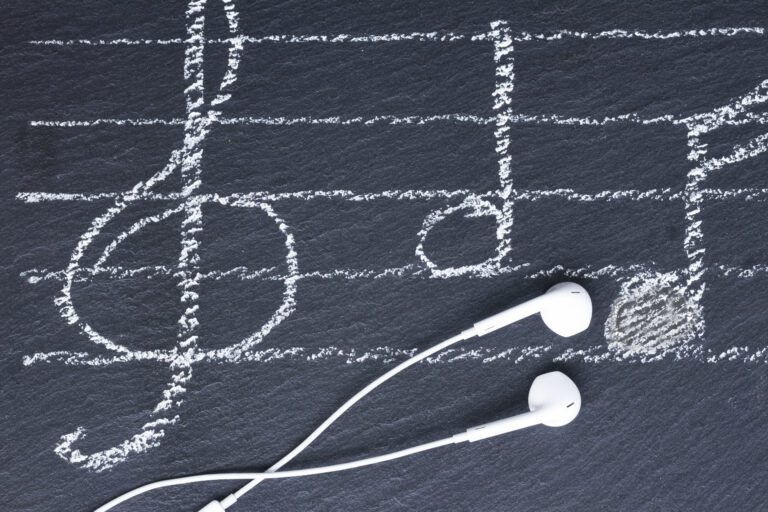
While self-learning is possible, a good teacher saves you time, prevents mistakes, and keeps you motivated.
🎓 Benefits of Taking Music Lessons:
- Personalized progress
- Correction of posture, pitch, or technique
- Motivation to stay consistent
- Structured pathway from beginner to advanced
- Preparation for performances and exams
Choose online or offline classes depending on your schedule and convenience.
8. Stay Motivated With Goals and Milestones
Set small, achievable goals like:
- Learn one song in a week
- Record and share a video
- Perform for friends/family
- Complete a level in your music book
- Pass a music exam (Trinity, ABRSM)
Track your progress and celebrate small wins.
9. Practice Patience – Progress Takes Time
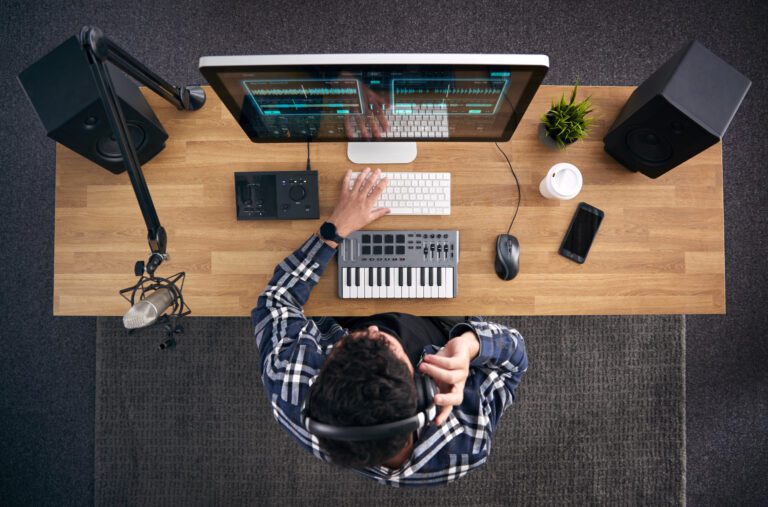
Music is a lifelong journey. Don’t get discouraged if progress feels slow.
Remember:
- Everyone struggles at first
- Consistency is more important than talent
- Even professional musicians keep learning
- Enjoy the process—it’s part of the art
10. Learn with The Mystic Keys – Your Musical Journey Starts Here
At The Mystic Keys, we specialize in helping students Learning music from scratch through our online one-on-one sessions.
🎶 We offer:
- Keyboard, Piano, Guitar, Drums, Western Vocals, Hindustani, Music Theory & more
- Grade 8 & Trinity-certified teachers
- Lesson notes, recordings, and personalized plans
- Flexible scheduling and goal-based guidance
- Performance opportunities and exam prep
- We’re more than just teachers—we’re mentors who walk with you through your musical journey.
🌐 Learn more at: The Mystic Keys
Conclusion: Begin Today, Grow Every Day
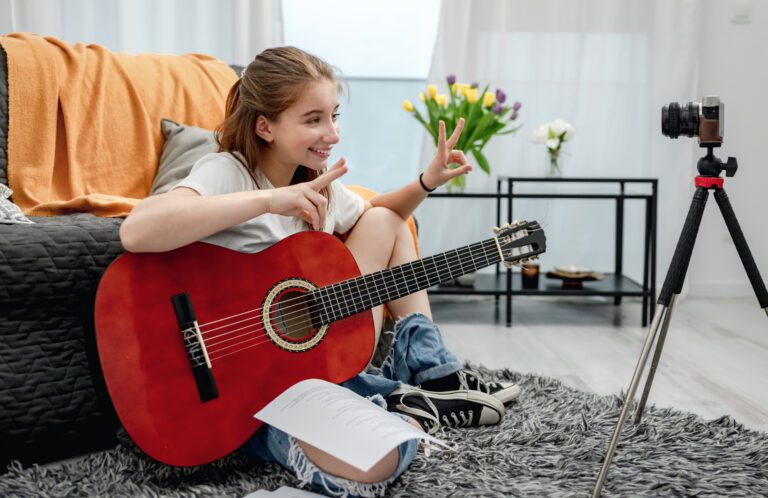
You don’t need a perfect voice or fancy instrument to start Learning music from scratch, You just need curiosity, consistency, and the courage to begin.
Start small. Practice often. Celebrate progress. Whether you dream of singing, playing, composing—or just enjoying music on a deeper level—your journey begins with one step.
🎵 Let today be Day 1 of your musical story.
Explore Western Vocals Lessons Online designed to help you improve your musical timing with techniques like metronome practice, tapping, and rhythm drills for better accuracy.
For more information and exciting resources about learning music, visit our website at The Mystic Keys. For more music content and exciting offers follow us on
Facebook, Instagram, YouTube, LinkedIn, Twitter, Pinterest, Reddit, Threads,
and Quora.
Related Blogs
Playing a musical instrument is a deeply rewarding pursuit, blending artistry, skill, and discipline into a lifelong journey. Whether you’re just starting out or have years of experience, there’s always room for growth.
Choosing the right instrument is one of the most exciting steps in a beginner’s musical journey. Whether you’re a parent enrolling your child, a teenager chasing a passion, or an adult reigniting an old dream, the first instrument you choose plays a big role in your learning experience.
When starting your musical journey, choosing the right instruments best for beginners is crucial to ensuring an enjoyable and rewarding learning experience. Selecting an instrument that suits your personal preferences, physical abilities, and musical goals can significantly impact how motivated you stay and how quickly you progress.


